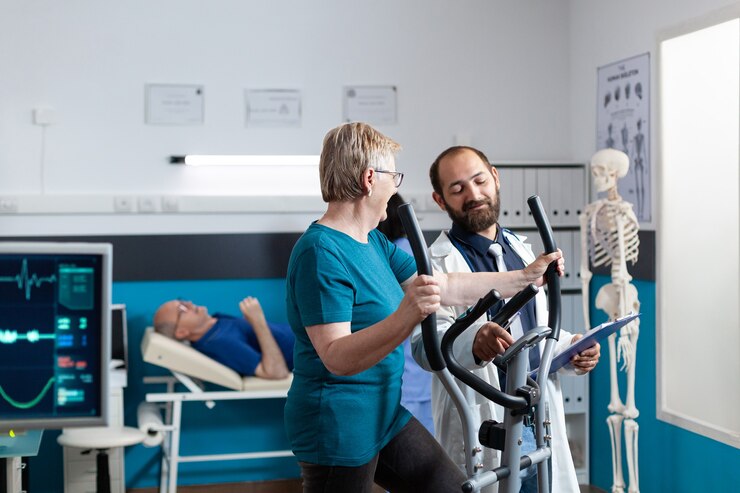
Arthroscopy & Sports Medicine
Sports injuries are an unavoidable aspect of the sport. All levels of athletes have the
danger of developing joint-related issues that could end their careers. Sports medicine and
arthroscopy can help in this situation. The diagnosis and management of joint problems have
been revolutionized by arthroscopy, a minimally invasive surgical technique. Small incisions
can be used by surgeons to access the damaged area, resulting in quicker healing and less
scarring.
On the other side, sports medicine focuses on the overall health of athletes, from
injury prevention to rehabilitation. By combining these two fields of study, athletes can
receive complete care that helps them heal from injuries and reach their full potential.
Athletes rely on arthroscopy and sports medicine to keep them in the game, whether it is for a
torn ligament, a persistent joint ache, or even preventive measures.
Conditions Treated
- Take Anti-Inflammatory
- As Pain Underneath the Kneecap
- Nonsurgical Treatment May Suffice
Related Studies
Emergency?
24 Hour Ready
Call Us for Emergency
+91-9828501360
Book an Appointment
Seamless Fitness Care Access: Booking an Appointment with Your
Trusted Doctor
Arthroscopy & Sports Medicine FAQ's
Arthroscopy is a surgical procedure that involves inserting a small, flexible, and lighted instrument called an arthroscope into a joint through small incisions. It is used to diagnose and treat joint problems, often in sports-related injuries.
Arthroscopy is commonly diagnosing and treating sports-related joint injuries, such as torn ligaments (e.g., ACL), meniscus tears, cartilage damage, and other conditions affecting the knee, shoulder, hip, and other joints.
Arthroscopy is commonly diagnosing and treating sports-related joint injuries, such as torn ligaments (e.g., ACL), meniscus tears, cartilage damage, and other conditions affecting the knee, shoulder, hip, and other joints.
During arthroscopy, the surgeon makes small incisions near the joint, inserts the arthroscope to visualize the interior of the joint on a monitor, and then performs necessary repairs or procedures using specialized instruments.
The recovery process varies depending on the specific joint and the procedure performed. Physical therapy is often a crucial component of rehabilitation and helps patients regain strength, range of motion, and function. Full recovery can range from a few weeks to several months.